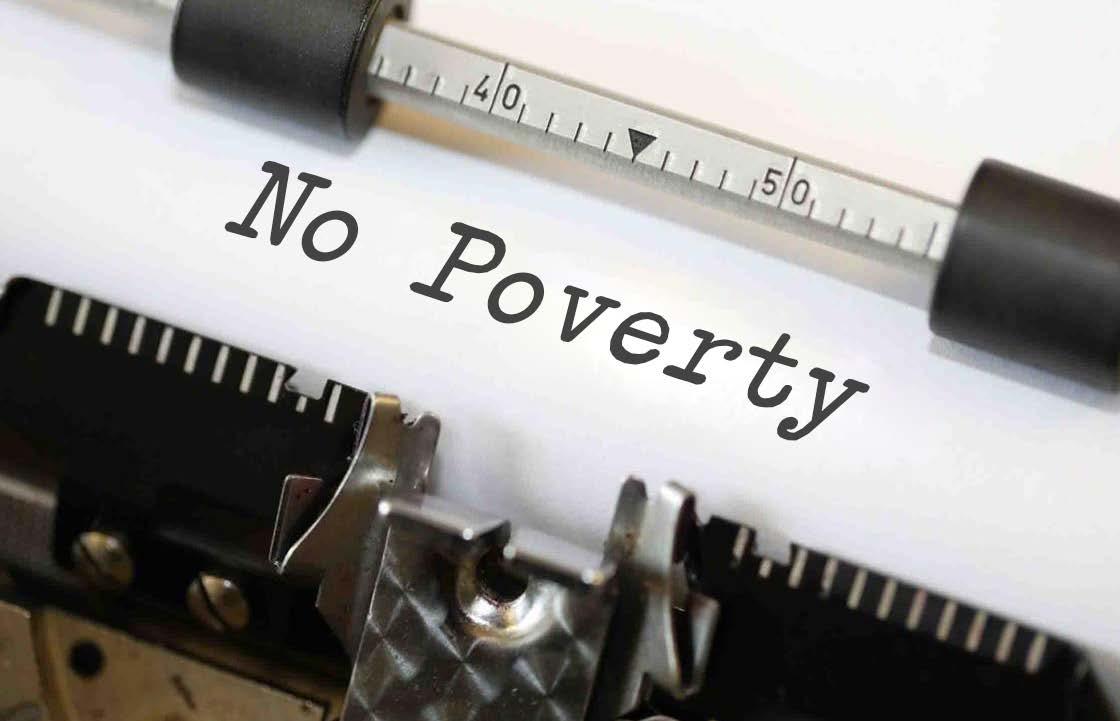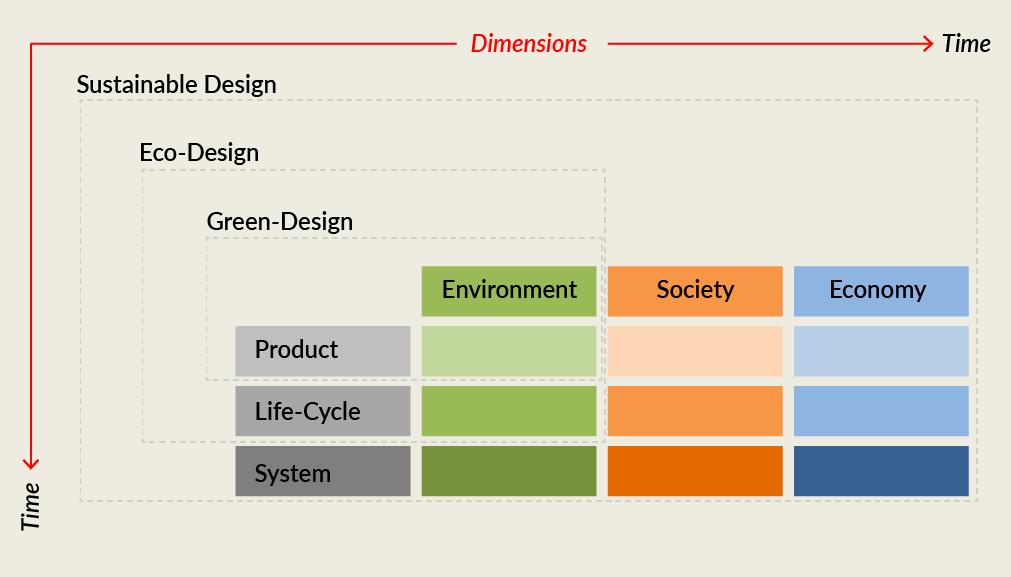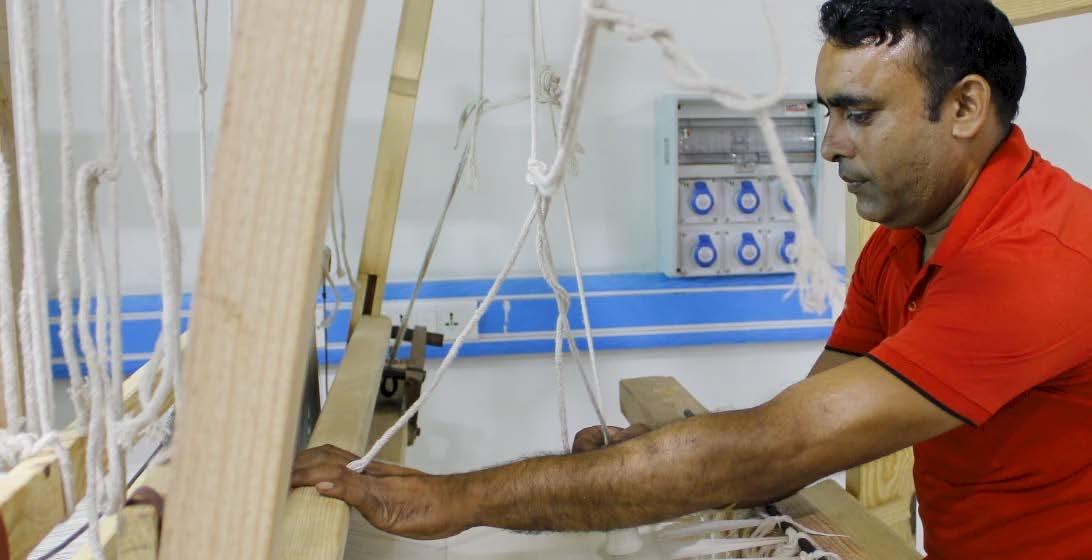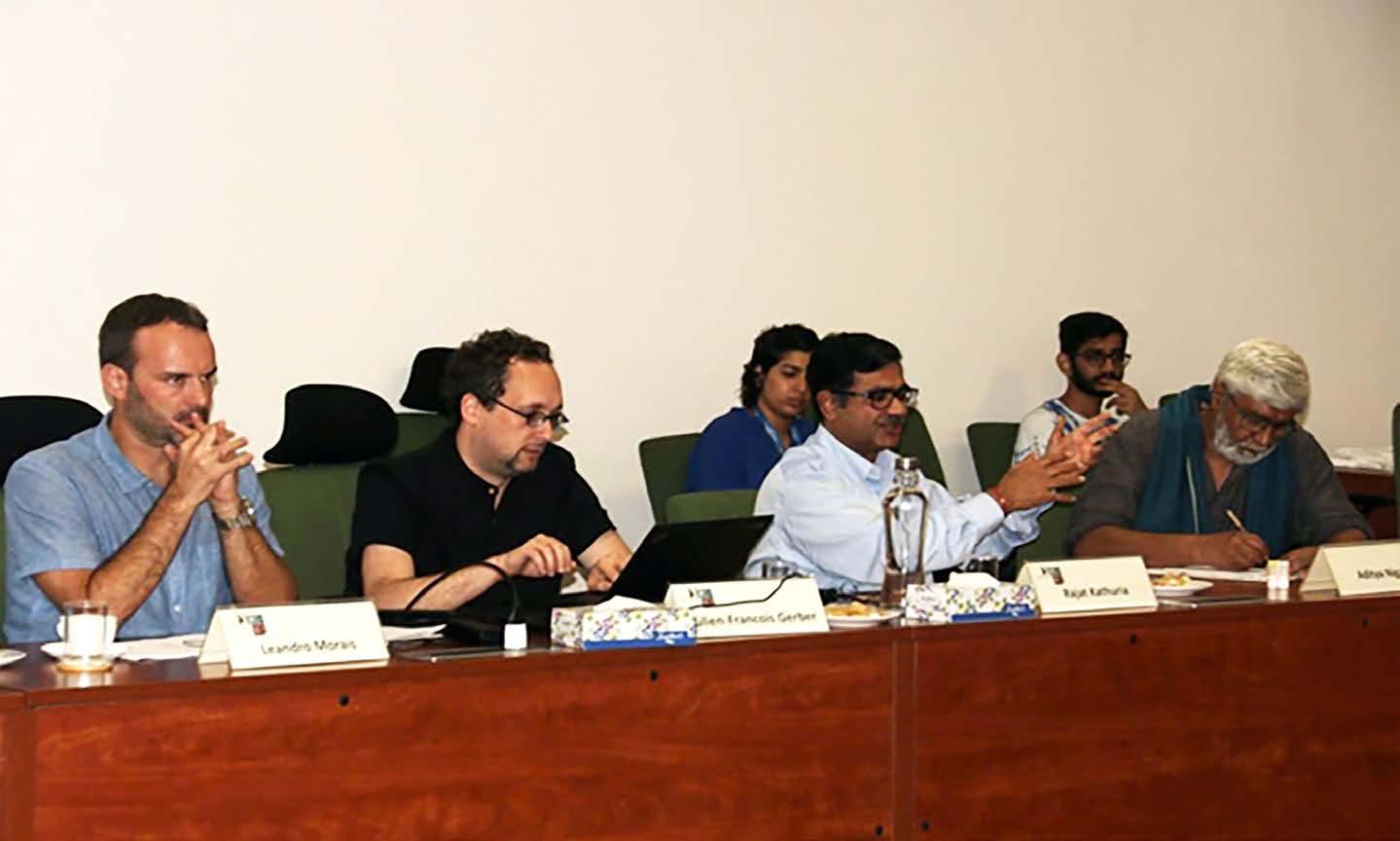

Report on Sustainable Development
GOAL 1
NO POVERTY
End poverty in all its forms everywhere

Sustainable Development Goal 1 has 7 targets and 14 indicators which elucidate that no poverty means to eradicate poverty in all its forms, such that the poorest and the most vulnerable have equal access to economic and natural resources, services, and new technologies. Higher education institutions are instrumental in fostering growth and reducing poverty. At Shiv Nadar, we understand our position as an employer and economic hub with a significant role in reducing poverty through our work in teaching, research, practices, and partnerships.
1 Teaching and Learning
The School of Humanities and Social Sciences has many departments which offer courses for undergraduate and graduate students, such as Poverty and Inequality (ECO 392), Economic Development (ECO 415), Interrogating Histories and Theories of Economic Development (INT 202), Problematizing Governance and Development (INT 603), Development Economics (ECO
605), Education for Sustainable Development (SWE 313), Growth and Inequality (ECO 425) and many more. We also offer meaningful education around sustainability and related areas to all students across the University besides the core subjects. For undergraduate students, many compulsory courses are regularly offered, such as Environmental Studies (CCC 704), Environmental Impact Assessment (CCC 406), Energy for Sustainable Future (CCC 614), Use of Energy in our Daily Life (CCC 624), and Green Energy Technologies (CCC613) and many more.
2 Research
Disease Modelling Laboratory
Samit Bhattacharyya, Associate Professor, Department of Mathematics heads the Disease Modelling Laboratory. The projects employ mathematical models and computational methods to gain a comprehensive understanding of
the interactions between the economy, infectious diseases, and human behavior. The data-driven models helps unravel the intricacies inherent in the underlying phenomena. Many of these projects study cost, disparity, burden, socio-economic status, and model behavior in poorer regions and countries.
Creative design for sustainability
The Department of Design in the School of Humanities and Social Sciences aspires to become a center of excellence in design education, research, and practice through a future-forward, human-centered, research-driven, and practice-oriented approach. One of the important research areas of the Department is to reverse the unsustainable trend of past years where design largely has contributed to the existing consumerism-based society and socio-economic development. The students and faculty work closely to develop a comprehensive framework of sustainable design and tools for the creative design phase, that specially addresses occupational issues

CREATIVE DESIGN FOR SUSTAINABILITY
for economically weaker section of society.
Recasting poor children: Basel Mission boarding schools in colonial Malabar
Dr. Divya Kanan, Assistant Professor, Department of History, in her work, explores the complex encounter between the missionaries of the Basel German Missionary Society (BM) and local children raised in their boarding schools/orphanages based at various parts of British-ruled Malabar in present-day south India. The BM played an instrumental role in establishing the earliest residential institutions for the children of the laboring poor in the Malayalamspeaking region where they sought to also forge ‘model’ Christian communities. Poor, colonized children belonging to lower caste communities were targeted for conversion, which resulted in varying contestations about childhood. The study attempts to trace the politics of these boarding institutions and demonstrates ambiguity and racial tension marking the missionary project of schooling poor children in colonial south India even as Christianity brought new ideas of morality and self.
Kannan, Divya. “Recasting Poor Children: Basel Mission Boarding Schools in Colonial Malabar.” In Global Perspectives on Boarding Schools in the Nineteenth and Twentieth Centuries,
pp. 145-165. Cham: Springer International Publishing, 2022.
Survival realities of footloose tribal migrants
Dr. Ajay Dandekar, Professor, Department of History, contributed a chapter that focuses on some key issues about the survival realities of the laboring poor among tribal populations residing in the eco geographies of the central Indian Adivasi region. The discussion is located in the context of the distress in the rural and the “exclusionary” urban, differentiated urbanization that is becoming increasingly characterized by incursions into the rural and dispossession of the rural population. The chapter looks at the conditions under which migration takes place from rural areas while also examining the fact that these conditions have got exacerbated as capitalist “development” spreads its reach to source labor from rural areas, further deepening the inequalities between the rural and urban.
Dandekar, Ajay, Rahul Ghai, and Pramathesh Ambasta. “Urban Underclasses and Industrial Serfs of Transforming Tribal Central India: Survival Realities of Footloose Tribal Migrants.” In Tribal Development Report, pp. 109-173. Routledge India, 2022.
Caste, space, and schooling in nineteenth-century south India
The research examines the spatial and temporal dimensions of varied schooling agendas for poor and oppressed caste children and adults in the princely state of Travancore in nineteenth-century colonial south India. Schools became socially contested and politically charged spaces in which various subaltern castes, particularly the Dalits and Nadars, articulated a new language of social and religious self-fashioning. British Protestant missionaries played a crucial role in provoking these imaginations and yet, the joint workings of caste and racial prejudices resulted in ambivalent cultural encounters in the educational landscape. The paper argues that schooling campaigns for the poor resulted in the perpetuation of hierarchized, caste-inflected norms of childhood and produced multiple marginal children in local society.
Kannan, Divya. “Caste, space, and schooling in nineteenth-century South India.” Children’s Geographies 20, no. 6 (2022): 845-860.
Redesign of the traditional handloom
Dr. Prakash Kumar, Associate Professor, Department of Design received a research grant from the Department of Scientific and Industrial Research (DSIR), Government of India for a project to redesign traditional handloom. The project aims to address occupational problems associated with traditional handlooms, which makes weaving a cumbersome and physically demanding task involving both legs and hands. Redesigning the traditional handloom would increase their efficiency, output, and hence the income for the weaver. Another important aspect is that of marginalized weaving communities who are unable to buy a new system by discarding the present setup. The
project is developing a set of lowcost accessories that can be fitted to existing traditional setups such that at a very small cost weavers can increase their efficiency and income at the same time.
3 University Operations
Skill development program
At Shiv Nadar, we are committed to educational opportunities for all people regardless of gender, race, religion, or ethnicity; hence the University has undertaken a Skill Development Pilot Program. The
specified admission criteria(s) in undergraduate programs, covering part or entire academic and living expenses.
Free meals for students from economically weak backgrounds
At Shiv Nadar, we believe in creating opportunities for deserving students from economically backward areas of rural India. One such example is students from VidyaGyan School1 who are from rural India and potential high achievers at par with their urban counterparts. Every year, the University covers the full educational

program imparts critical life skills to the children of the University’s contractual staff residing in nearby areas and enhances their prospects for a brighter tomorrow. The faculty and students at the University volunteer to impart classes to children to improve their computer and language skills.
Financial aid to deserving candidates
The University is committed to helping deserving students such that finance is a smooth process in the educational journey of exceptional students. Based on eligibility criteria, the University offers Financial Aid and Scholarships to students selected through the
and living expenses and provides free-of-cost meals for high-potential students from economically weak backgrounds. The University also provides food to all its minimum-wage working staff at subsidized rates.
4 Partnerships
1. Socio-economic growth, inappropriate use of antibiotics, and burden of drug-resistance
The emergence of antimicrobial resistance has raised great concern for public health in many lowerincome countries including India. Socio-economic determinants like poverty, health expenditure, and
to identify and nurture gifted students from economically underprivileged rural backgrounds and transform them through high-quality education into future leaders.
Student-led initiatives
Feeding India Chapter of Shiv Nadar IoE
Our University has the only studentrun chapter of Feeding India. Passionate about eradicating hunger, helping the poor and reducing food wastage on campus, the students work closely with non-government organizations and schools around the University to distribute meals to the needy and spread smiles. Following are some examples:
Aabhaar Drive – the drive is conducted occasionally to share a plate of gratitude with workers on campus. The students conduct a meal-slip collection drive out of their food money and provide meals for over 350 workers on campus.
Adrika Drive – the club students collaborate with AURA, the education student society of the university, and conduct a drive in partnership with a local non-profit organization, Aadrika. The aim is to deliver educational workshops to kids from economically weaker section of society at Aadrika using fun and knowledge activities concluding with a delicious, wholesome meal.
Sard-E-Chuski is Feeding India’s flagship event to serve a hot cup of tea to the guards on duty on cold winter nights. The drive reaches out to over 100 guards and workers on campus.
Economics Society
The Economics Society is a student-led organization comprising economics enthusiasts from all disciplines across the University. It is an active space that encourages, facilitates, and organizes events and discussions around the economic and socio-economic issues of society. It provides students a seamless opportunity to learn from the faculty, seniors, and peers. It organizes an annual flagship Economics Conclave, Iqtisadiyyat. Besides students from various universities and colleges many key economists and policy makers are part of the event.
awareness accelerate this emergence by influencing individuals’ attitudes and healthcare practices such as self-medication. This selfmedication practice is highly prevalent in many countries, where antibiotics are available without prescriptions. Thus, complex dynamics of drug- resistance driven by the economy, human behavior, and disease epidemiology pose a serious threat to the community.
Samit Bhattacharya, Associate Professor, School of Natural Sciences in collaboration with the Public Health Foundation of India (PHFI), Delhi researched socioeconomic growth, inappropriate use of antibiotics, and burden of drug resistance, to showcase how these three components are related through a self-reinforcing cycle. The study results prove how economic disparities (rich becomes richer and poor becomes poorer) diverge as a consequence, and the burden of drug resistance increases.
Malik, Bhawna, Habib Hasan Farooqui, and Samit Bhattacharyya. “Disparity in socio-economic status explains the pattern of self-medication of antibiotics in India: understanding from a game-theoretic perspective.” Royal Society open science 9, no. 2 (2022): 211872.
2. Poverty, migration, and ITN use to control malaria in SSA
Insecticide Treated Net (ITN) is the most effective control use for malaria in sub-Saharan Africa. Samit Bhattacharya, Associate Professor, School of Natural Sciences in collaboration with the University of Heidelberg (Germany), through their research argue that poor people use the ITN for fishing, and fencing to increase daily productivity instead of proper use. The project uses a game-theoretic approach to model and estimate the impact of human migration behavior on malaria
endemicity in Sub-Saharan Africa. The project was supported by the DAAD / Department of Science and Technology (DST) (2022-2025). Laxmi, Calistus N. Ngonghala, and Samit Bhattacharyya. “An evolutionary game model of individual choices and bed net use: elucidating key aspect in malaria elimination strategies.” Royal Society Open Science 9.11 (2022): 220685.
3. Shiv Nadar IoE collaborates with the Center for the Study of Developing Societies (CSDS)
Shiv Nadar IoE in collaboration with the Center for the Study of Developing Societies held a three-day ICAS MP conference2 on ‘Degrowth, Post growth or Reinventing Life: Prospects and Projects on September 21-22. The conference brought together insightful presentations and discourses. Discussions were held on ‘Substantive economics or economics of permanence. Comparative views on Indian and non-Indian approaches’, ‘Solidarity economy, agro ecology. Holistic approaches to food sovereignty, ‘Relational subjectivities or decolonizing the ‘monological self. Conceptual alternatives: Ubuntu, Tendrel, Resonance’,
‘Cognitive justice. Dialogue and mutual enrichment of cosmologies, knowledge, and technologies’ and ‘Radical Ecological Democracy, or the multiple dimensions of ‘living well’ in a pluriversal world: Sustainability, Relationality, Parity, Transparency’.
4. Institutional Interconnections, Inclusive Business and Crossboundary Cooperation
Dr. Partha Sarathi Roy, Assistant Professor, School of Management and Entrepreneurship, in partnership with the Indian Institute of Management (Calcutta), and Tokyo International University, received a project grant from Japan Society for the Promotion of Science (JSPS), the Government of Japan, KAKEN Grant Number 16H05707. The study performed a comparative Research among Japanese/European/ North American/Local Companies in India and Africa. This crosscountry research project looked into inclusive business models across four domains to understand emerging business models working in a for-profit mode yet solving a wicked problem around poverty. The research culminated in the form of a book published in 2022 by Emerald Publishing.

2ICAS:MP (M.S. Merian – R. Tagore International Centre of Advanced Studies ‘Metamorphoses of the Political’) is an Indo-German research collaboration of six Indian and German institutions funded by the German Federal Ministry of Education and Research (BMBF) as one of their Maria Sibylla Merian Centres. It intervenes in global debates in the social sciences and humanities and serves as a centre of
Shiv Nadar Institution of Eminence is fully committed to the UN Sustainable Development Goals (SDGs). We have embraced a four-pronged strategy for SDGs through teaching, research, our core institutional practices, and partnerships.
Deepa Hazrati Manager, Office of the Vice-Chancellor deepa.hazrati@snu.edu.in